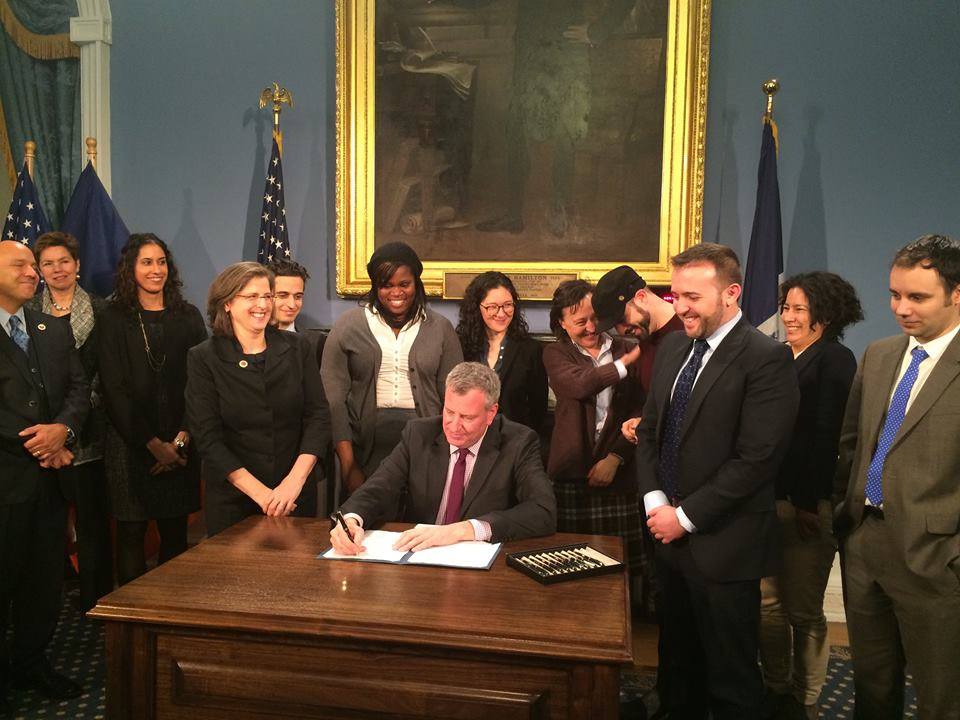On March 18, New York City Mayor Bill DeBlasio continued his public support of worker cooperatives as a tool to address economic inequality, signing into law the first ever piece of city legislation to require a city's economic development arm to track municipal support of worker cooperatives. This bill is another highlight in a campaign by the New York City Worker Cooperative Coalition to increase city support for worker ownership. It follows a $1.2 million dollar investment last summer to fund the development of worker cooperatives, the largest to date by a city government.
The bill, Intro. 423, will require the city to assess how it can better support worker cooperatives, report on the number of city contracts awarded to worker cooperatives and the number of worker cooperatives that received assistance from the Department of Small Business Services (SBS). At the bill signing, Mayor DeBlasio described the beneficial impact worker cooperatives have on communities:
Worker cooperatives historically treat their employees with respect and ensure that all people who work in the firm are able to benefit from their hard work, something that we do not see enough of in this country. And worker cooperatives are inherently important allies and partners in the effort to fight growing income inequality, so this bill is near and dear to my heart.
The bill was championed by Council Member Helen Rosenthal with support of Council Members Maria Carmen Del Arroyo and Carlos Menchaca. According to Joe Rinehart, a staff member at the Democracy at Work Institute, “We know from international experience that a public preference for worker-owned firms is critical to the success of a democratic economy. France and Italy both passed laws granting preferential treatment of worker cooperatives in public contracting over 125 years ago.”
 This law also replicates the process by which preferential treatment for other beneficial business forms was established. The first step in gaining preferences for veteran-owned and women- and minority-owned businesses was a study to show additional support was needed, then advocates were able to make their case for additional support to state and local agencies.
This law also replicates the process by which preferential treatment for other beneficial business forms was established. The first step in gaining preferences for veteran-owned and women- and minority-owned businesses was a study to show additional support was needed, then advocates were able to make their case for additional support to state and local agencies.
Advocates emphasized the unique benefits of the cooperative business form. “Worker cooperatives are a powerful tool for building business ownership in an inclusive economy based on values. And shared entrepreneurship makes business ownership more possible for more people,” said Melissa Hoover, Executive Director of the Democracy at Work Institute, which is a coalition member organization.
The passage of the bill would not have been possible without the advocacy of the New York City Worker Cooperative Coalition, an alliance advocating for worker cooperatives for building a fairer economy. The coalition includes many New York City-based worker cooperatives and not-for-profit support organizations. Coalition members include the New York City Network of Worker Cooperatives, Center for Family Life, Democracy at Work Institute, Green Worker Cooperatives, Make the Road NY, The Working World, ICA Group, CUNY Law, Urban Justice Center, Bronx Cooperative Development Initiative, New Economies Project, Workers Justice Project, and the Federation of Protestant Welfare Agencies.
